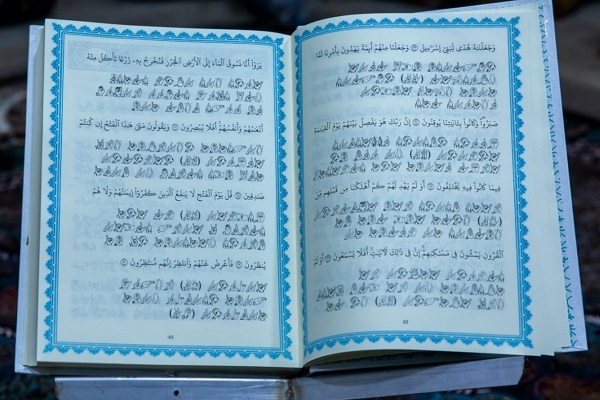Educator Translates Quran into Sign Language in Iraqi Kurdistan

The translation has been conducted by Ezaddin Hamed. Hamed, born in 1978 in Erbil, has a deep connection to the deaf community, with three deaf family members. His career as a teacher and translator for the deaf highlighted the need for a more accessible Quran.
"I felt that the deaf were deprived of reading the Quran. Teaching the Quran to deaf students using the Arabic alphabet proved cumbersome. Without sign language, the holy words remained remote," Hamed explained in an interview with The New Arab.
Determined to bridge this gap, Hamed spent two years translating all 114 chapters of the Quran into sign language. His work was reviewed and praised by a committee from the Kurdistan Regional Government (KRG) Ministry of Endowment and Religious Affairs, including Muslim scholars and deaf representatives.
Read More:
Nabaz Ismael, the ministry's spokesperson, stated, “The Higher Fatwa Committee in the Kurdistan Region after full research had permitted the translation, hence we as the ministry praise Hameed and his work. It is a vital step in helping deaf people read the holy book.”
Despite the achievement, challenges remain. Many deaf individuals face additional barriers, such as limited literacy and the lack of a standardized Kurdish sign language. Gulzar Abdullah, a tutor at Amazha Organization for Human Development, noted, "The work is good, but it's difficult for the deaf to fully understand the texts unless tutors interpret them in detail."
Read More:
Hamed's vision extends beyond Kurdistan, hoping that deaf Muslims worldwide will benefit from his translation. He remains committed to making the Quran available to anyone who wishes to print more copies, provided they do so without profit. "I only want the reward from Allah," he said, reflecting his deep humility and devotion.
Source: Agencies



